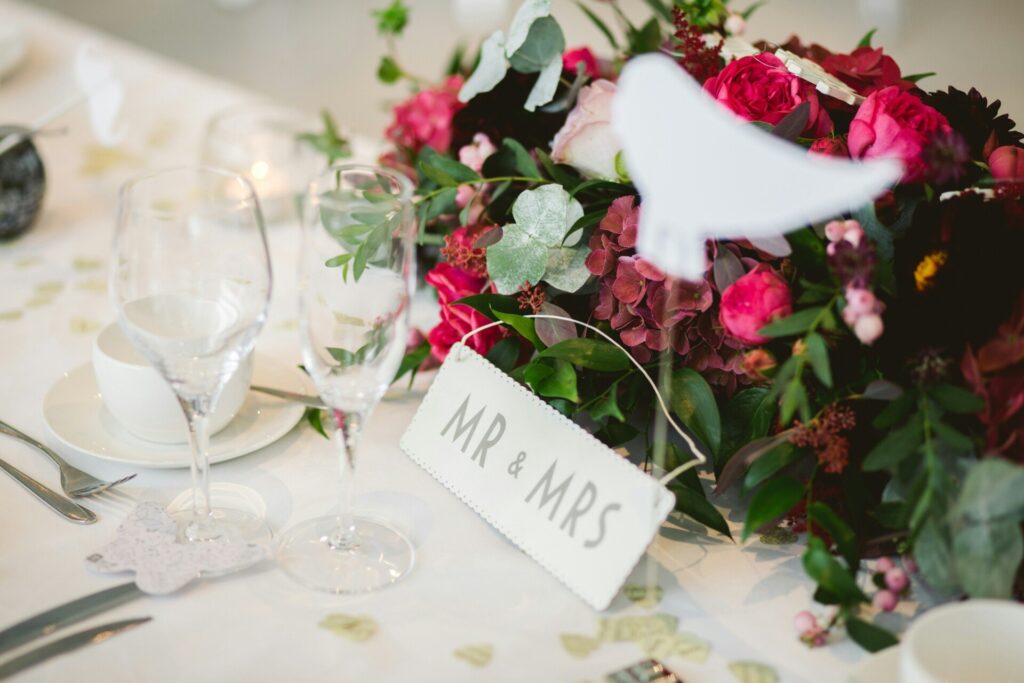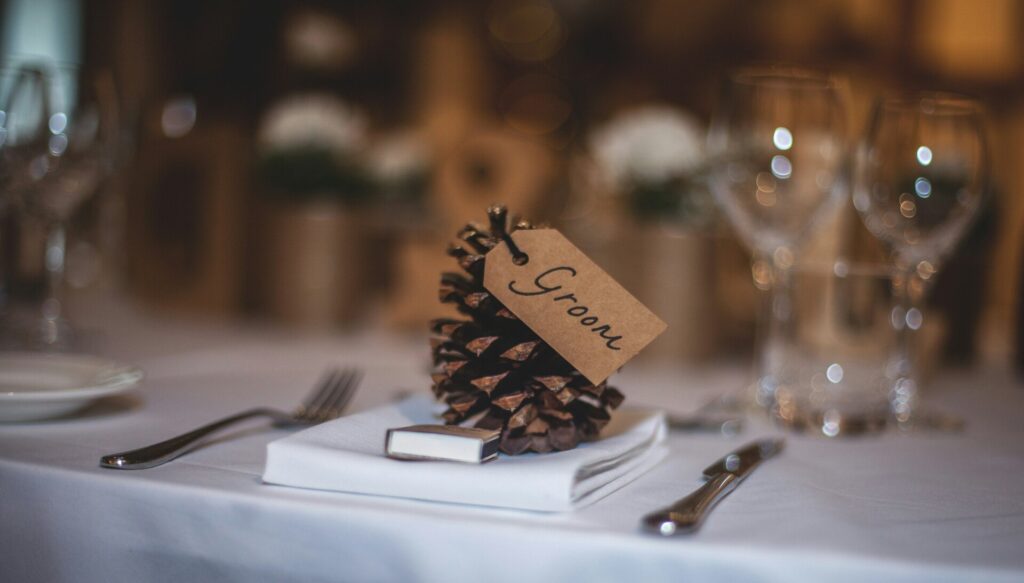Planning a wedding can be one of the most memorable experiences of your life, but it also comes with its fair share of challenges, especially when balancing different perspectives. Bringing in a professional wedding planner can ease this process significantly. With their expertise, they can act as a bridge between your creative ideas and your mom’s cherished visions, ensuring that everyone feels valued and heard.
Moms often have deeply rooted hopes for their child’s wedding day, perhaps tied to traditions, family expectations, or personal experiences. On the other hand, you might have a distinctly modern vision or specific preferences that reflect your personality. While the balance can sometimes feel elusive, professional wedding planners specialize in taking everyone’s ideas into account and turning them into a cohesive plan.
A planner helps break down the wedding planning process into manageable steps. They will sit down with both you and your mom to discuss priorities, budgetary boundaries, and aesthetic preferences. By having a neutral party facilitate these discussions, it can diffuse potential tensions and create space for compromise.
For instance, if you envision a minimalist, eco-friendly wedding and your mom wants an ornate, traditional celebration, a professional wedding planner can suggest solutions that incorporate both styles. They may recommend subtle nods to tradition within a modern design, or propose sustainable alternatives that still give the event a grand feel. Their role is to focus on the logistics while respecting your family dynamics and making sure the event is a reflection of your values.
In situations where opinions clash, a planner can also introduce creative options that neither you nor your mom may have considered. By presenting these choices, they encourage collaboration rather than confrontation. Whether it’s choosing the venue, deciding on the menu, or selecting floral arrangements, their goal is to ensure that everyone involved feels heard while keeping your overall vision intact.
By coordinating with both parties, a professional wedding planner provides structure and organization, allowing you and your mom to focus more on the emotional and celebratory moments leading up to the big day. Their experience is invaluable in creating a balanced and harmonious planning process.
Strengthening Bonds and Handling Emotional Moments

Wedding planning with mom can be an emotional experience filled with moments of joy, nostalgia, and even stress. While it’s a unique opportunity to strengthen your relationship through shared decision-making, it’s also important to acknowledge that emotions may run high during certain discussions.
For many mothers, participating in the wedding planning process is not only an honor but also a way to relive their own wedding or express their love. This emotional investment can sometimes manifest through strong opinions or suggestions, which might feel overwhelming. To keep communication fluid, approach these moments with empathy and patience.
Begin by actively listening to your mom’s ideas. Whether it’s about the guest list, attire, or wedding traditions, her input often comes from a place of care. Thank her for sharing her thoughts and clarify which aspects are negotiable and which align more closely with your vision. By including her in key decisions that hold sentimental value, you can foster a sense of teamwork and mutual respect.
At the same time, it’s important to establish healthy boundaries. Wedding planning can blur the lines between parent and adult child relationships, so take time to express your expectations calmly and assertively. For example, if you feel strongly about a part of the wedding, such as writing personalized vows or crafting a nontraditional ceremony, articulate your reasons clearly so that she can better relate to your choices.
During the planning process, some moments may evoke a great deal of emotion both positive and challenging. Nostalgia might surface as your mother recalls milestones from your upbringing or reflects on her role as a parent. Lean into these moments by acknowledging their significance and celebrating the memories together. If tensions arise, remind yourself or your mom of the larger goal: a meaningful celebration of love and family.

Building a timeline that incorporates time for both shared activities and individual tasks can also help mitigate stress. For example, you can dedicate one day to dress shopping with mom and another for more personal tasks, such as writing heartfelt thank-you notes to vendors or rehearsing your vows. By creating balance, you’re signaling that her support matters while also preserving your independence.
Sometimes, delegating some of the logistics to a professional wedding planner may also help smooth over conflicts. Planners can mediate when emotions run high and provide solutions that work for both you and your mom. It’s a decision that can alleviate the stress of coordinating trying moments while maintaining the meaningful bonding experience of shared planning.
The Dos and Don’ts of Wedding Planning with a Parent to Keep Stress in Check
Wedding planning with a parent, especially wedding planning with mom, can be filled with both heartwarming experiences and potential challenges. By establishing clear guidelines, you can ensure a smoother and more enjoyable experience for everyone involved. Below is a closer look at the dos and don’ts to keep stress under control.
Do: Share Your Vision Early
One of the most effective ways to avoid miscommunication is to share your vision as early as possible. Give your mom a clear picture of what you imagine for the wedding, including style, theme, and priorities. This helps set expectations from the start and can reduce misunderstandings later in the process.
Don’t: Make Assumptions

Avoid assuming that your mom’s suggestions are intended to override your wishes. Often, her ideas stem from personal experiences or cultural traditions she holds dear. Taking the time to listen and ask questions about the reasoning behind her preferences can lead to compromises that honor both perspectives.
Do: Set a Realistic Budget
Financial conversations can be particularly sensitive during wedding planning, so approach them carefully. If your mom is contributing financially to the wedding, make sure everyone agrees on spending limits and priorities before committing to vendors or services. Clear communication prevents confusion and ensures that the budget remains manageable.
Don’t: Try to Do Everything Yourself
Even if you consider yourself organized, trying to handle every detail alone can lead to burnout. Enlisting a professional wedding planner allows you to delegate tasks and focus on the special moments with your mom. It’s a choice that benefits everyone by lending structure to what can otherwise feel like an overwhelming process.
Do: Respect Each Other’s Boundaries

Your wedding may be deeply personal, but it’s also a family event. Strive to respect your mom’s boundaries while advocating for your own. If disagreements arise, schedule a calm discussion to explore options together without letting the stress of the moment influence your decision-making.
Don’t: Let Stress Take Over
Planning a wedding often brings pressure, but it’s important to remind yourself and your mom that you’re working toward a shared goal. Take regular breaks, whether it means enjoying a meal together without discussing the wedding or setting aside time for non-wedding-related activities. Maintaining perspective can ease the tension and keep the experience meaningful.
Do: Celebrate Small Wins
Take time to acknowledge and celebrate when decisions are made or tasks are completed. Whether it’s choosing the perfect venue or finalizing the guest list, these moments are opportunities to bond and reflect on the progress you’re making as a team. Positive reinforcement can boost morale and affirm the shared effort of planning your wedding with mom.
Professional Wedding Planner Tips for Managing Budget Talks with Mom
Wedding planning with a parent, especially with your mom, often involves discussing budgets. Money conversations can be stressful, but they are crucial to ensure the event aligns with everyone’s expectations. As a professional wedding planner, I have seen how a structured approach can make these discussions more productive and less emotional.

Start by establishing open communication and setting clear boundaries. It’s important to identify who is contributing financially and what specific aspects are covered by each person. For example, your mom might want to fund the catering, while you and your partner handle the venue and décor. Transparency about these roles is essential.
Creating a detailed budget spreadsheet is a great way to break down all the anticipated costs. Include categories like the venue, catering, attire, photography, and floral arrangements. Share this document with everyone involved, and make it a living resource you can adjust together as plans evolve. It helps track progress and open discussions when unexpected costs arise.
Another tip I recommend is deciding on priorities before diving deep into expenditures. Discuss specific elements that matter most to you and your mom. Does she feel strongly about grand floral arrangements? Do you prefer intimate keepsakes over lavish centerpieces? Knowing what each party values helps guide spending while ensuring mutual satisfaction.

Remember, budget discussions aren’t just about numbers. They reflect each person’s hopes and expectations for the big day. Balancing emotions and practicality goes a long way toward reaching mutually agreeable solutions.
Wedding Planning with Mom: Incorporating Family Traditions While Staying True to Your Style
Wedding planning with mom often brings up cherished family traditions. Your event becomes an opportunity to honor customs while reflecting your personal style. Blending these influences requires sensitivity, creativity, and compromise, especially when balancing the old with the new.
Start conversations about traditions early. Ask your mom about her vision and any rituals or elements that are significant to your family. These could include cultural practices, symbolic ceremonies, or heirloom items. For instance, some families hold tea ceremonies, light unity candles, or incorporate specific songs or dances. Discuss their meaning with her. These steps give better insight into their importance.
Once you’ve identified meaningful traditions, think about their placement in your event. Can you incorporate them in modern ways that complement your overall aesthetic? For example, if your mom hopes to display a family china collection, use these pieces as dessert plates rather than main settings, preserving their significance while keeping things fresh. If traditional attire isn’t your first choice, consider weaving its elements into accessories, like a sash or jewelry, to honor your heritage.
Collaboration is key to balancing these perspectives. Communicate your vision, and let your mom know how you see her contributions fitting in. For example, explain why you prefer a minimalist floral arrangement but love the idea of including her favorite blooms. This approach ensures everyone feels heard and valued.
Ultimately, blending traditions with your style allows the event to feel authentic and meaningful. It is your chance to create a wedding that looks and feels like you, with the richness of family history woven throughout.
Conflict Resolution Strategies from a Professional Wedding Planner
Planning a wedding with mom often brings strong opinions to the surface. Differences in preferences, priorities, or decision-making styles can be challenging, but they don’t have to derail the process. Using conflict resolution strategies that are proactive and empathetic helps maintain harmony and keep plans on track.

The first step to resolving conflicts is to listen. When your mom expresses strong views, take the time to hear her out without immediately debating or dismissing her suggestions. Acknowledge her feelings and let her know you value her input. This approach usually helps keep the conversation productive rather than emotional.
After listening, clarify the areas where you agree and where you differ. For example, if your mom loves a formal venue but you prefer something more casual, identify where you could meet in the middle. Perhaps an outdoor garden venue with elegant details might satisfy both preferences. Finding compromises requires creativity and patience.
Set boundaries when disagreements become too intense. Schedule regular planning meetings and clearly outline decisions that have already been finalized. If needed, bring in a neutral third party such as a professional wedding planner to mediate. As experienced facilitators, planners can keep discussions focused and impartial.
Another effective strategy is to delegate areas of decision-making. Allow your mom to take charge of elements she’s passionate about. For instance, if she’s excited about the cake design, trust her to manage that process while you focus on other aspects like the entertainment or seating arrangements. This gives her agency without overstepping.
How to Divide Responsibilities Without Overstepping?
Wedding planning can be an exciting yet complicated process, particularly when a parent steps up to assist. Sharing responsibilities with a parent, such as wedding planning with mom, often brings mixed emotions. Your parent’s expertise can save time and energy, but it’s essential to strike the right balance to maintain harmony and ensure everything progresses smoothly.

The key is to create a clear plan for dividing responsibilities, setting boundaries, and keeping the channels of communication open throughout the process. Here are practical tips to ensure that planning together becomes a productive, enjoyable experience rather than a source of tension.
Discuss Expectations Early On
Every family has its own approach to wedding planning with a parent. Before diving into any tasks, take time to sit down and discuss expectations. Have an honest conversation about what you envision for your wedding day, and listen closely to your parent’s thoughts or suggestions.
This is an opportunity to determine which areas your parent would like to contribute to, such as managing vendor appointments, helping with budgets, or coordinating guest logistics. Taking this step ensures both parties have a clear understanding of their roles.
Divide Responsibilities Clearly

Once expectations are set, it’s time to divide tasks in a clear and structured way. Assigning specific responsibilities to your parent adds clarity while giving them a meaningful role in the planning process. For example:
- Venue Selection: Allow your parent to research and suggest venues that fit the style and budget you’ve outlined together.
- Catering Options: If your mom loves cooking or exploring cuisines, ask her to narrow down catering vendors for tastings.
- Guest List Coordination: Delegate tasks like collecting RSVPs or helping with seating arrangements to keep everything organized.
Having defined responsibilities helps streamline the process and minimizes overlaps, which can lead to disagreements.
Set Boundaries
Wedding planning with a parent can sometimes blur lines of control. It’s vital to gently remind your parent that while their input is valued, the final decisions rest with you and your partner. Establishing boundaries in a respectful manner avoids conflict later on.
For example, if your mom volunteers to handle decor but her style differs drastically from yours, share your preferences upfront and suggest working together to find a middle ground.
Maintain Open Communication
Transparency and frequent updates go a long way when working together on wedding plans. Schedule regular check-ins to review progress, discuss concerns, or express gratitude for their efforts. This keeps everyone informed and strengthens your collaboration.

Cultural and Generational Differences in Wedding Planning with Mom
Planning a wedding often involves managing expectations from various family members. When wedding planning with mom, differences in cultural or generational perspectives can come into play. While these differences may initially add complexity, they often offer opportunities to incorporate meaningful traditions into your big day.
Understanding Your Parent’s Perspective
Your parent’s vision for your wedding may stem from their upbringing, personal experiences, or cultural norms. Take time to listen and assess which traditions are important to them. This doesn’t mean you need to embrace every suggestion, but including meaningful elements can make your parent feel seen and appreciated.
For example, some mothers may place emphasis on religious or traditional customs. Whether it’s incorporating specific rites, rituals, or attire, these thoughtful additions could become beautiful highlights of your celebration.
Balancing Modern Ideas with Traditional Values
It’s not uncommon to encounter generational debates when planning modern weddings. If your style leans toward minimalist or unconventional, while your mom prefers grandeur, compromise can pave the way forward. Consider incorporating both approaches into different parts of the event modern stationery paired with traditional ceremonies, for instance.

This doesn’t just respect diverse opinions; it creates a meaningful, inclusive experience for both families.
Communicating Differences Respectfully
In scenarios where conflicting ideas arise, it’s important to stay calm and actively listen. Avoid dismissing their suggestions outright. Instead, respectfully explain why certain aspects are important to you and seek ways to incorporate their preferences where feasible.
For example, if your mom insists on inviting extended family you may not know closely, evaluate if it’s possible to accommodate those suggestions within budget constraints. Balancing on this fine line ensures emotions from neither side consistently dominate the planning discussions.
Collaborating to Infuse Heritage

Inviting your mom to be involved in cultural decisions brings personal, sentimental touches to your wedding. Whether it’s blessings from elders, ethnic cuisines, or music, weaving both modern and generational traditions ensures people from different age groups enjoy meaningful participation together respectfully while offering your personality.
The Real Costs of Skipping a Professional Wedding Planner When Mom Takes the Lead
There’s no denying that teaming up with your mom for wedding planning can make the process feel more personal and affordable. However, some couples may decide against hiring expert help, such as a professional wedding planner, to save costs upfront. While skipping a planner has its benefits, weighing the potential drawbacks is crucial when your mom assumes the lead role.
The Value of Hiring a Professional
Professional wedding planners bring specialized skills to manage large-scale events. From vendor negotiations to emergency backups during unforeseen circumstances, their experience can alleviate stress and ensure everything runs seamlessly. If your parent is handling these tasks instead, the pressure to juggle multiple roles may overshadow their enjoyment of participating in the wedding.

Time and Emotional Investment
Planning without professional help often requires significant time commitments and emotional energy. It’s worth considering if your mom has the bandwidth to handle invoices, schedules, and last-minute emergencies while still playing their desired role on the day of the event.
An overwhelmed parent might unintentionally introduce unnecessary tension to the festivities, which could have been avoided by delegating tasks to a seasoned planner.
Hidden Costs of DIY Planning
While skipping a professional wedding planner might seem cost-effective, it often results in hidden expenses. Asking your mom to oversee areas like vendor coordination, decor assembly, or logistics could require extra resources, such as hiring additional support on the day of the wedding to execute plans efficiently.
Professional planners already have access to trusted networks of vendors, which often result in discounts and better deals compared to arranging services independently. A mom-led approach without professional oversight could lead to overlooked contracts or missed deadlines requiring rushed purchases at higher costs.
Preserving Family Relationships

Wedding planning with a parent offers beautiful moments of collaboration, but added stress can strain the relationship if expectations and results drift apart. Professional planners also act as mediators during disagreements, preserving family relationships and reducing misunderstandings.
Optimizing Both Roles
For couples who want the best of both worlds, involve both your mom and a professional wedding planner. This way, sentimental and expertise-driven perspectives can combine effectively without compromise while taking major coordination burdens off your shoulders.
